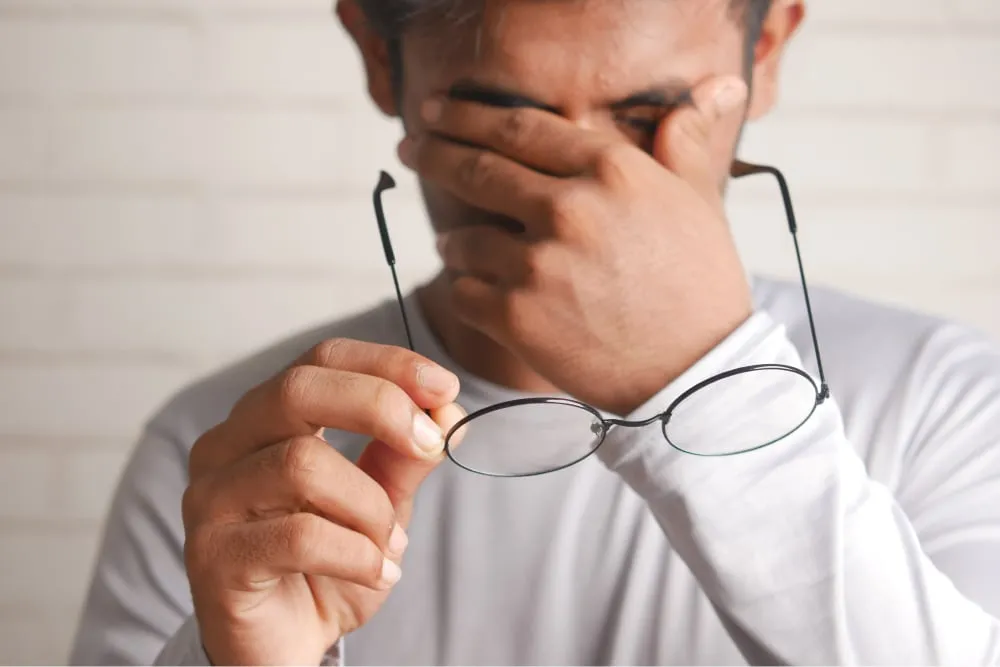What is lanugo?
Lanugo hair is fine, soft hair, sometimes referred to as downy hair or peach fuzz. It usually grows in utero, while a fetus is still developing.2
Most of the time, the hair will fall out before birth, but it's possible for a newborn baby to have lanugo, especially in the case of premature babies. In these cases, the hair stops growing and typically falls out on its own, after a couple of weeks.2
Lanugo can grow anywhere on the body, except those areas that don't have hair follicles, including the lips, nails, palms, and the soles of the feet.2 The purpose of this downy hair is to help keep a fetus warm, though lanugo hair sometimes appears on adults, including those with AN or severe malnutrition, and people who have certain cancers or tumors.2
What causes lanugo hair in anorexia?
Lanugo hair is one of the most common dermatological signs of anorexia nervosa.3 People struggling with the eating disorder generally experience this symptom when they lose significant weight, and with it, body fat.1
As body fat diminishes, there are less layers to help keep the internal organs warm. To make up for this loss, blood is often redirected away from the extremities and focused centrally. This can lead to other skin signs of AN, including dry or flaky skin and bluish lips, fingers, ears, and nose, as well as a sensitivity to cold.1
Lanugo hair often grows in response, as well, in an attempt to regulate body temperature.1 It can grow anywhere, but often appears along the spine, as facial hair or on the sides of the face, on the shoulders, or along the forearms.4
You might be interested in
When does lanugo go away?
The good news about AN is that many symptoms are not permanent. As the condition is treated, and steps are taken to build a healthier diet and lifestyle, many symptoms will recede. The same is true with lanugo.
The feathery hair is not considered a medical complication, and therefore, there is no "treatment" specifically for the issue. Directly addressing anorexia nervosa—or the source of malnutrition—is the only way to get rid of lanugo.
Generally, once someone regains enough body fat, lanugo hair will fall out on its own.4 The process usually happens slowly, and people with anorexia nervosa may notice lanugo hair falling out as their recovery journey goes on.
Other ways anorexia impacts hair growth
The impact of malnutrition should not be understated. It can manifest throughout the body and have any number of physical effects. And when it comes to hair growth, the malnutrition developed through AN can just as easily lead to hair loss, or overly brittle and dry hair.3
In these cases, specific nutritional deficiencies brought on by the limited food intake involved with AN often drive the issue. Some vitamins and minerals most important for hair growth and hair health include:5
- Iron
- Zinc
- Selenium
- Niacin
- Some polyunsaturated essential fatty acids
Maintaining healthy and sustained weight gain is a crucial aspect of reversing these effects on hair. But it's important that a diet include these essential nutrients to best promote healthy hair regrowth.
Finding help for anorexia nervosa
As an eating disorder, anorexia nervosa can cause a number of mental, physical, and emotional health concerns. And medical complications occurring with this illness won't go away on their own, and tend to only get worse with time.
If you or a loved one fear weight gain, limit food intake, struggle with body image issues, or experience other symptoms of AN or other eating disorders, it's time to seek out help.
Your primary care physician, therapist, or another trusted medical professional can be a great place to start. These experts can help you receive an official diagnosis and may be able to recommend you to successful treatment programs.
Treatment can be done at home
At Within, our diverse team comes from multidisciplinary backgrounds, able to help address the mental, physical, and emotional needs of recovery. And our unique program allows you to access this personal support and complete your recovery program from the comfort of your own home.
Regardless of where you look for it, it's important to remember that help is always available, and it can help lead you to a healthier and happier future.
Get a free consultation 







































